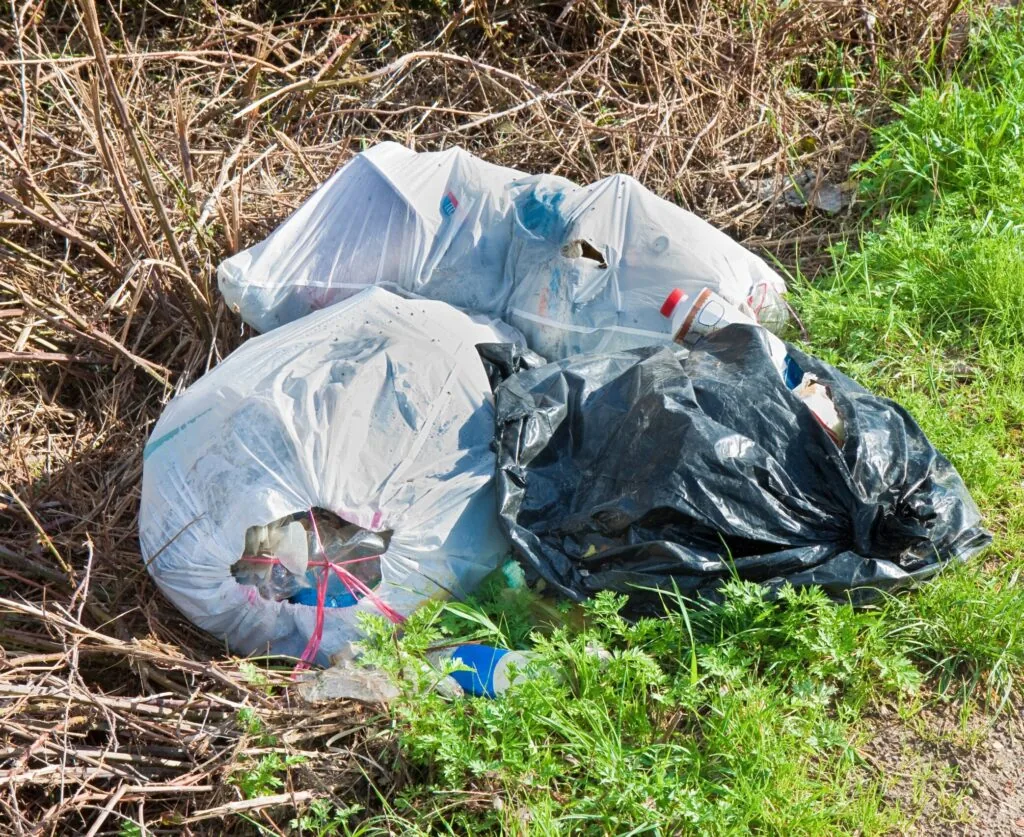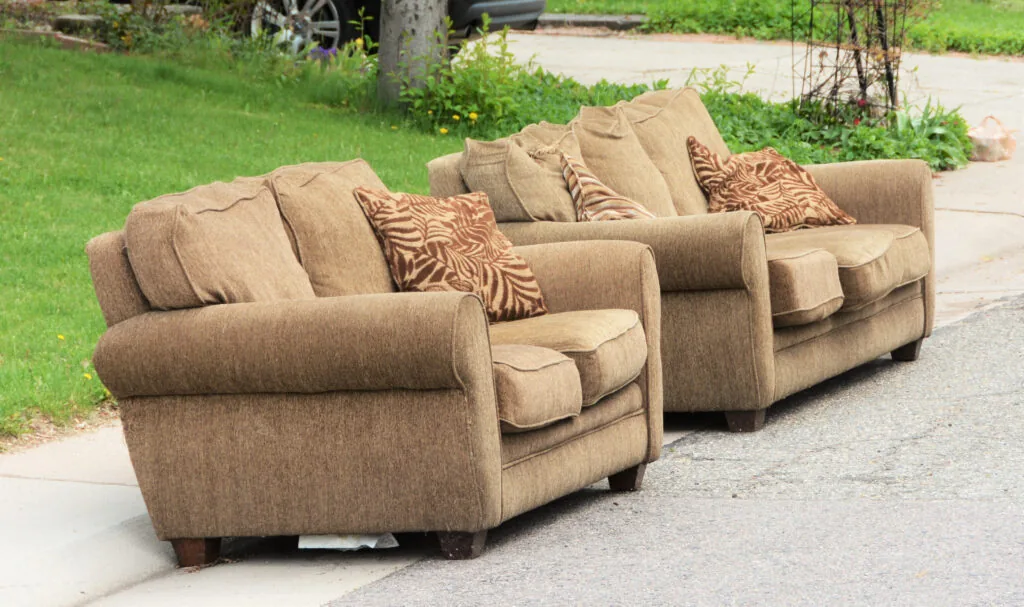Dumping vs. Donating: Making Responsible Choices in North Carolina
Should You Dump or Donate Your Junk in North Carolina?
You have two options when it comes to decluttering a home or business in North Carolina: dumping vs. donating. The choices you make impact the environment and local community, so we’ll explore the pros and cons of each to shed light on how you can make responsible choices in the Tar Heel State.
The Consequences of Dumping
Environmental Impact
Unfortunately, dumping carries significant environmental repercussions. Discarding old furniture on the roadside or illegally disposing of hazardous waste is never good for the eco-system. Pollution created by improperly disposing of appliances, mattresses, and more, adversely affects the environment and carries consequences across the state.
Soil and Water
An illegal dump doesn’t have to be a large facility. It can be as simple as disposing of items on the side of the road in secluded areas. Runoff from items that are dumped illegally affect soil and water and negatively impact plant growth. It can easily make people and animals in the area sick.
Human Health
Aside from making humans sick by contaminating the soil and water, illegal dump sites pose physical risks to humans as well. These sites attract pests, can cause flooding, and become fire and safety hazards. Sadly, children have been known to suffocate in large appliances that are dumped illegally, like refrigerators.

Air Pollution
Large landfills release gasses into the air as materials begin to decompose. Most times, illegal dumpsites are close to communities and neighborhoods meaning that irritants and pollutants are suspended in the air. Similarly, the same occurs when items are illegally burned in the backyard.
Legal Consequences
The state of North Carolina takes illegal dumping seriously. Individuals caught improperly disposing of waste face hefty fines and legal penalties. The legal consequences that come with illegal dumping range from a misdemeanor to a felony charge and fines of up to $15,000 per day per violation.
Reporting Illegal Dumping
If you aren’t aware, illegal dumping is an environmental crime, so you are advised to report an illegal dumper if you catch them in the act or see an illegal dump site. Contact the nearest solid waste office detailing the illegal site or the dumper. There are many reasons people dump illegally, but one of the main reasons it continues in North Carolina is that many are unaware of the severity environmental impact that follows.
The Benefits of Donating
Supporting Local Communities
One of the most rewarding aspects of donating is the direct impact it has on your local community. North Carolina is home to a wide range of non-profit organizations and thrift stores that depend on donations to fund their missions. By donating items you no longer need, you can support those in need and help local charities thrive.
Where and How to Donate
North Carolina boasts numerous organizations and locations where you can donate various items, from clothing and household goods to electronics and furniture. Some of which will pickup larger items and donate them for you:

Reducing Waste in North Carolina
Raleigh’s Waste Reduction Initiatives
Raleigh, the state’s capital, is a shining example of a city committed to waste reduction, outlined as part of their 2023 Climate Action Plan. To aid in reducing greenhouse gas emissions, Raleigh has plans to increase recycling and composting, as well as make their waste management routes more efficient to encourage proper disposal of household waste. Actions taken to reduce waste are available to the public in the sustainability reports.
Finding the Right Balance
Choosing between dumping and donating can be a tough decision, especially when you’re not sure how to dispose of an item in the first place. We’ve put a list together of common items that we get asked about, and the best way to dispose of them.
Furniture and Appliances
From couches to refrigerators, getting rid of an old appliance can be a headache. Luckily, you have a few options if your appliance is still in good condition. You can sell them on the Facebook marketplace or even call for a donation pickup with Habitat ReStore or another organization. If they aren’t in working condition, however, you may be able to schedule a pickup with your local waste management company or call a junk removal company to responsibly dispose of your appliances for you.
Mattresses
Even if your mattress is stained and has springs poking you, they should never be taken to a landfill for disposal. Most landfills aren’t accepting mattresses anymore because they’re commonly brought for disposal, take years to decompose, and release toxins when they begin to decompose. There are many companies that will collect your mattress for recycling or donation. You can even sell your old mattress or give it to a friend if it’s gently used.
Electronics & Batteries
When you have old electronics that no longer work, there are many local facilities that allow you to drop them off for recycling. The Division of Environmental Quality offers helpful tips for reducing e-waste in North Carolina such as upgrading your computer instead of buying a new one and repairing devices instead of tossing them out.
Recycle first!
Try to remember the overused saying, “Reduce, reuse, recycle!” It plays a major role in waste reduction and encourages you to find other methods of disposal. Donating and recycling are simple, effective ways to reduce waste in North Carolina and deter illegal dumping. When in doubt, a local junk removal company can haul your waste and properly dispose of it for you, so you don’t have to do any guesswork!

Conclusion
In conclusion, your choices matter. Whether it’s preventing environmental damage, supporting local charities, or abiding by North Carolina’s laws, each action contributes to the well-being of our state. By making responsible decisions and choosing to donate rather than dump, you become an essential part of the solution to creating a cleaner, more compassionate North Carolina.
Stay up to date on efforts to improve North Carolina’s environmental quality. Have you done anything creative to prevent unnecessary waste? What are your favorite charities to donate to?

Leave a Reply